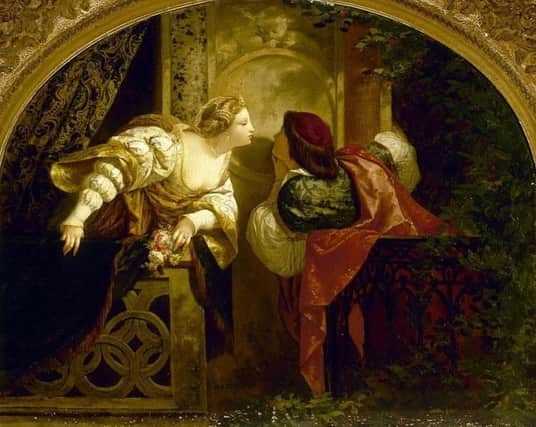Bakery Bulletin by Philippa Kelly: Shakespeare's influence on Apri Fools' Day


You see, Mercutio is peeved because the party’s just getting started but Romeo’s keen to get home for some Netflix and chill.
Ok, it’s more that he fears for his life because his new girlfriend’s dad wants him dead, but anyway, why is this particularly beautiful Shakespearean quote even relevant?
Advertisement
Hide AdAdvertisement
Hide AdBecause it’s the first recorded mention of April Fools’ Day. Although that might not seem apparent at first (despite the second word being “fool”), it would help if I told you that Act III, Scene I is in fact set on April the first. Romeo’s swift exit makes loads more sense now - an April Fools’ Day party sounds like a date for Captain Boring, not our fair Romeo.
Before Shakespeare’s quill cemented April Fools’ Day into our calendars, there is some fragile evidence of its existence.
There are some Roman tablets in Fishbourne Palace, which if your school didn’t take you to then your education was way below par - it’s only in Chichester so maybe educate yourself?
Just an idea. Anyway, the tablets are like big flat stones, not giant iPhones, and they depict images of Fools’ Pie.
Advertisement
Hide AdAdvertisement
Hide AdThere’s no explanation - the stones are only so big, and the pie takes up a lot of room - but esteemed historians use this as the basis of the first entry into the April Fools’ Day history book.
That’s not a real book. Well, it might be. I doubt it though.
If I can fit the history of it into this column, the book would be as unputdownable as when J K Rowling tried writing books for grown-ups.
The “recipe” for April Fools’ Day pie is nonexistent. The idea is that one bakes an utterly disgusting pie and serves it to their peers.
Advertisement
Hide AdAdvertisement
Hide AdSo how do we know this, when Shakespeare only mentions it in passing, and the Romans just drew a picture on a rock?
Whenever greatly unimportant minutiae hardly worth remembering and definitely not worth recording is required, look no further than the Germans.
German history books recall April Fools’ Day better than any other nation.
Hardly surprising that they pounce on historically hypothetical heresay rather than focus on abhorrent archival accuracies, but let us not discredit their proof of Fools’ Pie, as without it my column’s dead in the water. Fools’ Pie, or Dummkopf-Torte, has no named creator, yet various recipes, that only differ slightly, have been printed in over four hundred books since the 17th century.
Advertisement
Hide AdAdvertisement
Hide AdThe gist is as above - they’re all disgusting and that’s the point - but as baking methods have improved, so too has the appearance of Dummkopf-Tortes, therefore increasing the likelihood that a fool, or Dummkopf will fall for your dastardly trick.
I hope you enjoy April Fools’ Day, even if you’re forced to attend a party.
If someone offers you a torte, play it safe and politely decline. Also, you should never believe someone just because they can mimic Shakespeare.